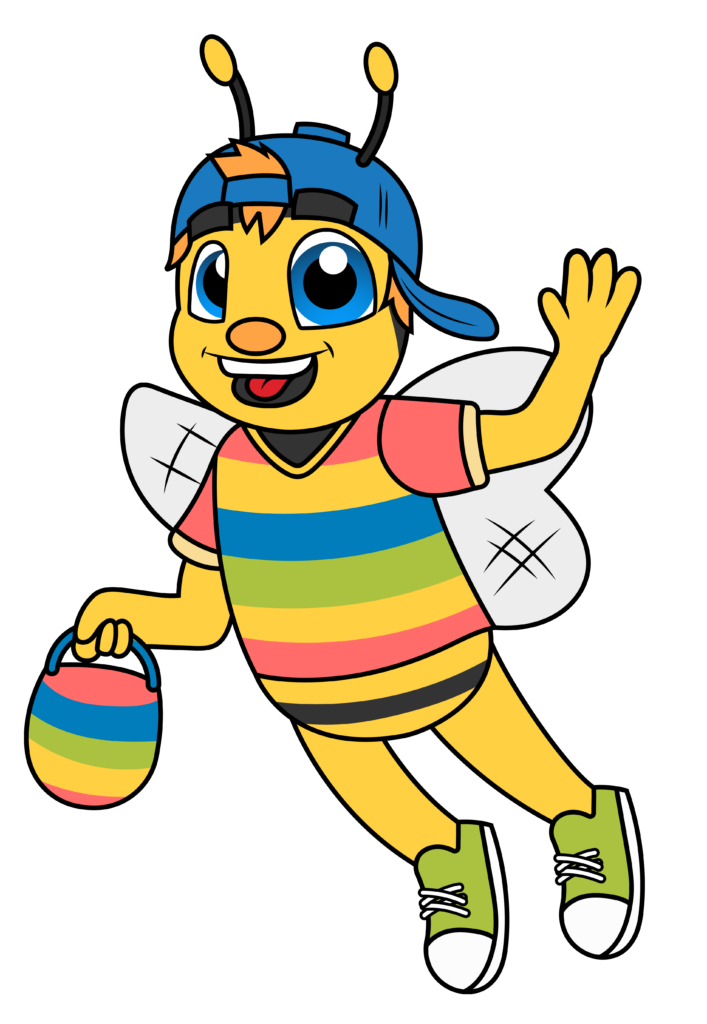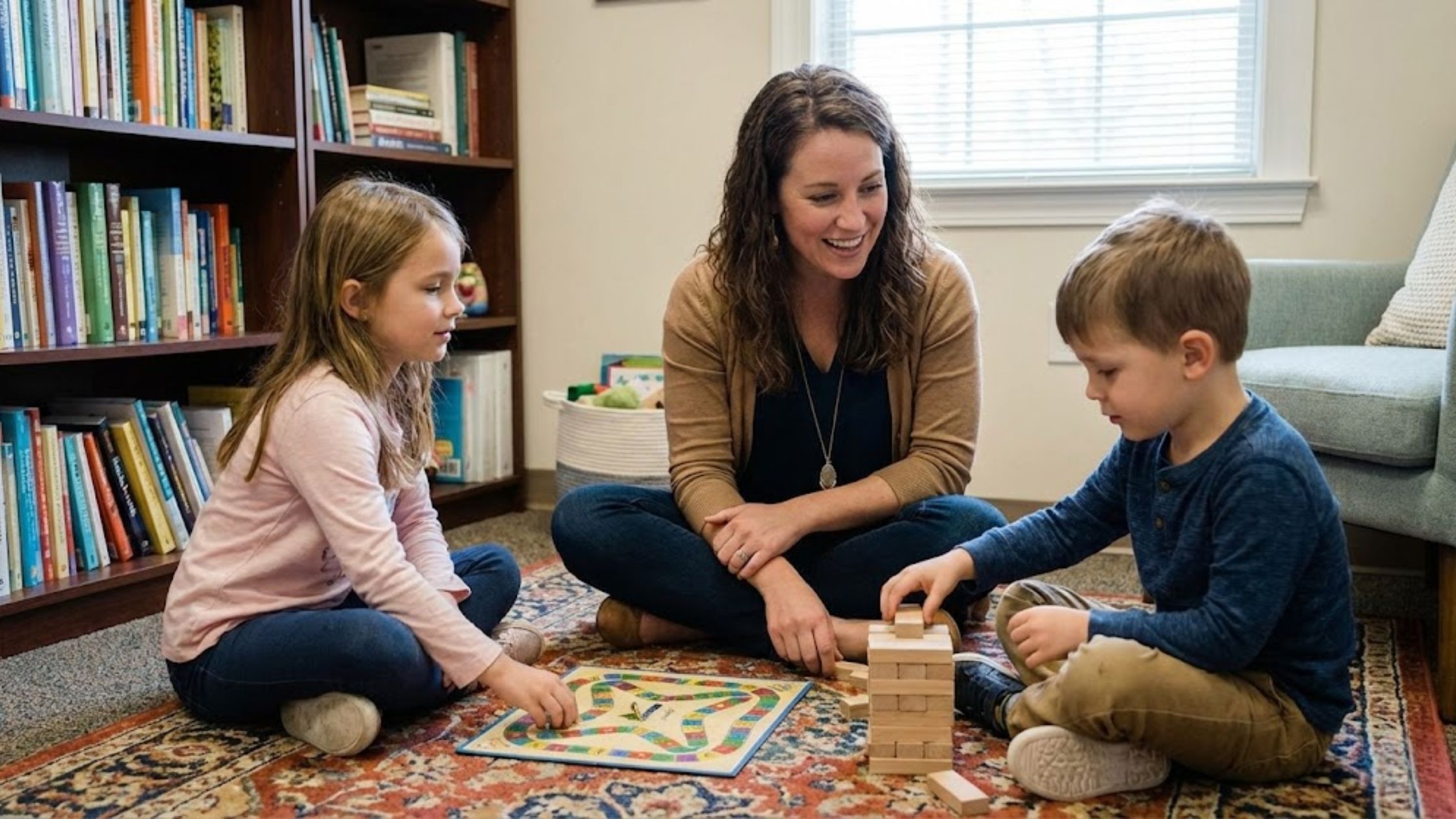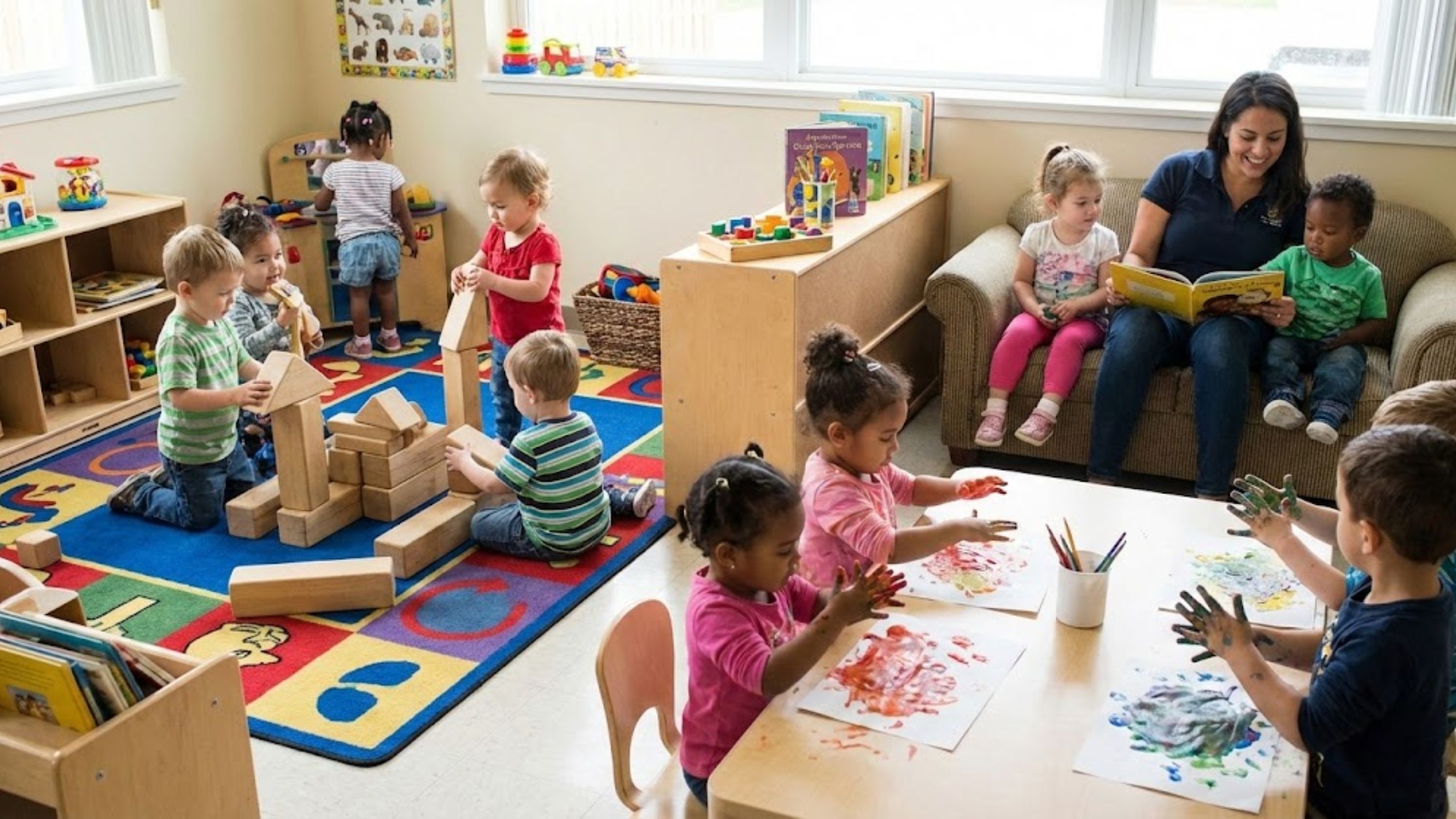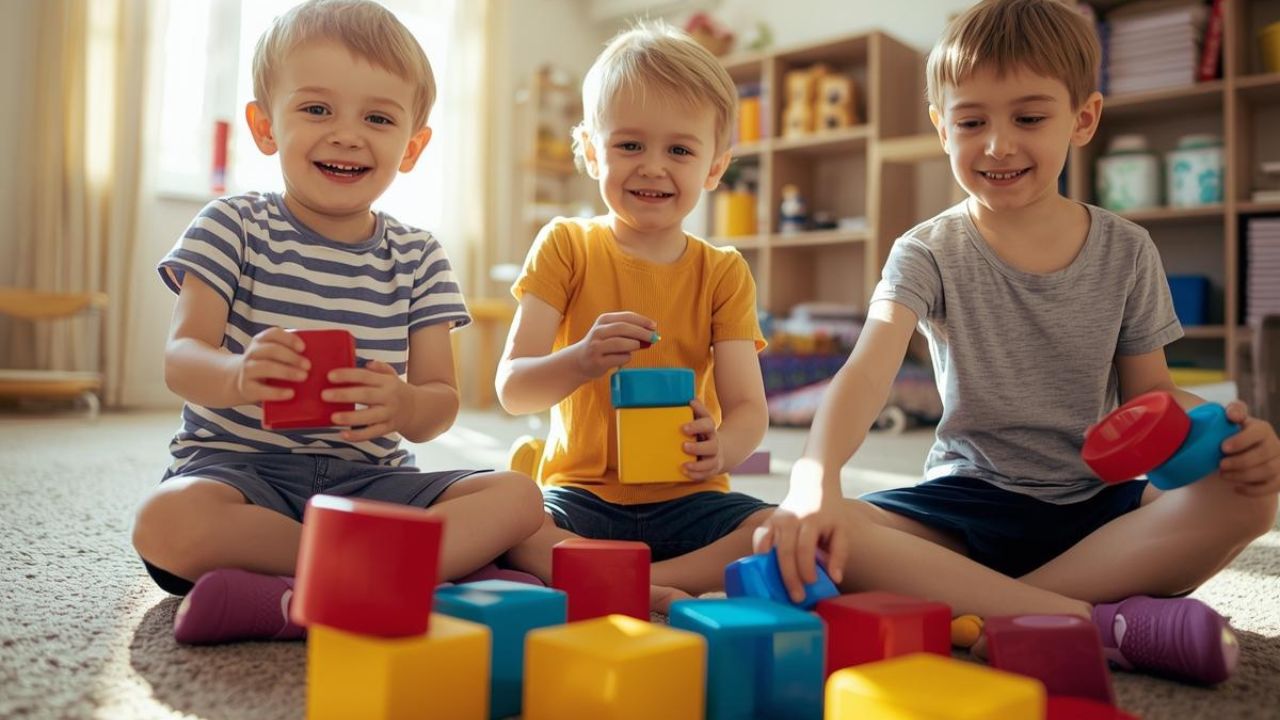A child’s emotional state and behaviors significantly influence their ability to learn and thrive. This is why the most important lessons toddlers learn aren’t about academics– they’re about understanding their own feelings, navigating friendships, and building confidence. Social-emotional skills are invaluable as they are teachable across all educational levels, benefiting students, teachers, parents, and school cultures alike.
What is Social-Emotional Learning
Social-emotional learning for toddlers is about teaching them important skills to understand their feelings, make good choices, get along with others, and build positive relationships. It helps toddlers learn to manage emotions like happiness or frustration, set goals, show kindness to others, and make smart decisions as they grow and interact with friends and adults. These skills are crucial for toddlers as they explore their surroundings and learn how to interact with others in a positive way.
Why Social-Emotional Learning Matters Most for Toddlers
Social-emotional learning is really important for toddlers because it helps them in many ways as they grow. It’s not just about learning academic things like numbers and letters—it’s about teaching them skills that will help them understand their feelings, get along with others, and feel good about themselves.
Social-Emotional Learning Builds the Foundation for Learning
During the toddler years, children’s brains are growing fast, especially when it comes to emotions and how they interact with others. SEL activities help with this by giving toddlers a good start for learning and dealing with their feelings.
Social-Emotional Learning also helps toddlers focus and pay attention. When they learn to handle their feelings and control themselves, they can do better in activities and feel more involved in what they’re learning.
Social-Emotional Learning helps toddlers remember things better. When they learn ways to handle stress and control their feelings, it helps them remember and understand things more easily.
Social-Emotional Learning Improves Social and Emotional Well-Being
Social-Emotional Learning is also great for helping toddlers feel good about themselves. It helps them see what they’re good at and celebrate when they do well.
Learning how to handle tough feelings is another important part of Social-Emotional Learning for toddlers. When they learn ways to handle stress, it helps them feel calmer and more stable.
Social-Emotional Learning also teaches toddlers how to control their feelings and express themselves in a good way. This means fewer times when they get upset or have a hard time, making life at home and at daycare or preschool better.
Social-Emotional Learning helps toddlers make friends and get along with others. They learn how to understand how other people feel, talk well with others, and solve problems without fighting. These skills are really important for making good friends and getting along with family, teachers, and friends.
Social-Emotional Learning Allows Toddlers to Achieve Academic Success
Social-Emotional Learning is not just about feelings—it helps toddlers do well in school too. When toddlers feel good and are sure of themselves, they want to join in and do their best in activities at school.
Social-Emotional Learning also helps toddlers make good choices. When they learn to think about things and solve problems, it helps them make good choices at school and in their everyday lives.
Social-Emotional Learning helps toddlers work well with others. When they learn how to talk and work with friends, ask questions, and help out in groups, it helps them learn well and do things with others.
Social-Emotional Learning has Long-Term Benefits
Social-Emotional Learning helps toddlers now and in the future too. Toddlers who learn good social-emotional skills are less likely to have tough times with their feelings, like being too worried or sad, when they grow up.
Early learning about Social-Emotional Learning also helps toddlers have good relationships later in life. They learn how to make and keep friends, which is really important for feeling good and getting along with others when they get older.
Social-Emotional Learning helps toddlers be strong when things are hard. When they learn ways to deal with problems and keep going, SEL helps them do well in all parts of life.
Social and Emotional Learning In Your Toddler’s Early Childhood Education
These formative years of our children lay the groundwork for their lifelong development. When we nurture their social and emotional skills early on, we are teaching our children to navigate relationships, manage emotions effectively, and build a solid foundation for future learning and well-being. These skills not only support academic success but also foster resilience, empathy, and a positive outlook on life, preparing children to thrive in both school and beyond. Here are some other benefits:
- Having Social-Emotional Learning In Early Childhood Education Helps Toddlers Build Healthy Relationships
Fostering social and emotional intelligence in early childhood education helps children develop the skills needed to build and maintain healthy relationships with peers, teachers, and family members. They learn to communicate effectively, empathize with others’ feelings, and resolve conflicts peacefully. - Social-Emotional Learning In Early Childhood Education Allows Toddlers to Cope with Challenges
Emotional intelligence equips children with the ability to cope with various challenges they may encounter in life. By understanding and managing their own emotions, children can better navigate stressful situations, setbacks, and disappointments, fostering resilience and a positive attitude towards overcoming obstacles. - Social-Emotional Learning In Early Childhood Education Teaches Them How to Respect Differences
Early childhood education that promotes emotional intelligence teaches children to respect and appreciate diversity. They learn to recognize and respect differences in perspectives, cultures, and backgrounds, fostering a sense of inclusivity and empathy towards others. - Social-Emotional Learning In Early Childhood Education Equips them with Collaborative Skills
Emotional intelligence enables children to work effectively in groups and collaborate with others. They learn how to share ideas, listen actively to peers, and contribute positively to teamwork activities. These skills are essential for academic success and future professional environments. - Social-Emotional Learning In Early Childhood Education Supports Their Emotional Health
Supporting emotional intelligence from an early age contributes to children’s overall emotional well-being. They learn to regulate their emotions, manage stress, and develop a positive self-image, which are crucial for mental health and happiness. - Social-Emotional Learning In Early Childhood Education Enhances Social Perspective
Early exposure to emotional intelligence concepts helps children understand social dynamics and develop a broader perspective on social interactions. They learn the importance of kindness, fairness, and cooperation, laying a foundation for responsible citizenship and contributing positively to their communities.
Social-Emotional Learning at Clever Bee Academy
Social-emotional learning is very important for your child’s growth. When you focus on these important skills early on, you are helping your child build a strong foundation for academic success, emotional health, and positive relationships. Prioritizing social-emotional learning will set your child up to become a resilient, kind, and well-rounded individual. The benefits they gain now will support them throughout their entire life.
At Clever Bee Academy, we are dedicated to fostering social-emotional learning in all our students. Our child development centers in Ohio provide a nurturing environment where children can thrive and explore their potential. Our programs are designed to support children from infancy to twelve years old, catering to the diverse needs of each age group.
Schedule a tour to visit our locations and meet our dedicated educators who are committed to nurturing your child’s social-emotional growth and overall development.







